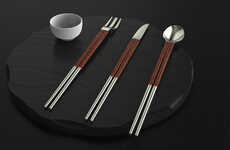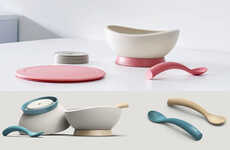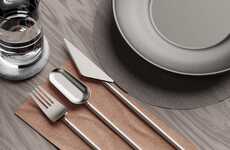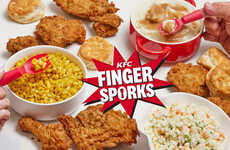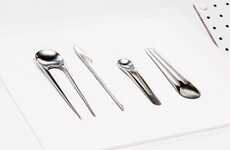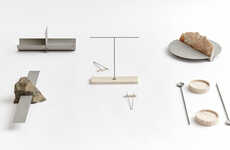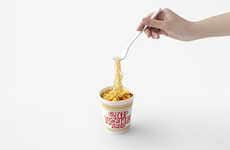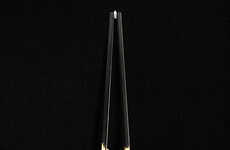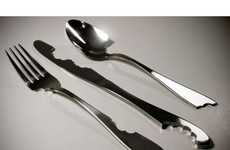
It's All About Fingers
References: designboom
We were taught growing up a golden eating etiquette rule which says “Don't eat with your fingers.†But looking at the submissions for the Dining in 2015 contest, I guess that etiquette is about to change. Four entries revolved around the use of fingers as cultry utinsels. A few more designs utilized pens, pencils or chopsticks in a similar manner. I prefer the finger designs; you may forget your pen or pencil, but you always have your fingers!
We have Fingers, which Italian designer Alberto Ghirardello describes as "a cutlery set you can use with phalanxes. It is made in strong plastic material, with an silicon insert on the interior side: that gives to the cutlery more grip and comfort ." We also have similar designs such as eat with your fingers by Key portilla-kawamura & Ali Ganjavian from spain, Finger Cutlery by Jie Zhu from china, and schnittstelle by Mijalkovic milan & Urbanek katharina from Austria.
Check out the Din-Ink design concept which won second place at the contest:
We have Fingers, which Italian designer Alberto Ghirardello describes as "a cutlery set you can use with phalanxes. It is made in strong plastic material, with an silicon insert on the interior side: that gives to the cutlery more grip and comfort ." We also have similar designs such as eat with your fingers by Key portilla-kawamura & Ali Ganjavian from spain, Finger Cutlery by Jie Zhu from china, and schnittstelle by Mijalkovic milan & Urbanek katharina from Austria.
Check out the Din-Ink design concept which won second place at the contest:
Trend Themes
1. Finger Cutlery - Designing reusable finger cutlery sets made from sustainable materials could disrupt the traditional form of cutlery and dishware industry.
2. Phalange-based Utensils - Creating universally designed, customizable utensils that blend mechanics and ergonomics to better fit the needs of the user can disrupt the consumption-based food industry.
3. Edible Utensils - Developing edible utensils made from natural materials like wheat, rice, and corn flour or plant-based elements can revolutionize the plastic and non-reusable utensils industry.
Industry Implications
1. Food and Beverages - Innovative utensil designs can revolutionize the way we consume food, impacting all related industries associated with food and dining.
2. Sustainability - Creating more eco-friendly and sustainable utensils reduces carbon footprints for everything from manufacturing to waste disposal, disrupting the way current industries operate.
3. Packaging - By designing utensils that can also double as plates or packaging, companies could eliminate the need for additional packaging, leading to fewer waste materials and reducing overall costs.
1.8
Score
Popularity
Activity
Freshness

